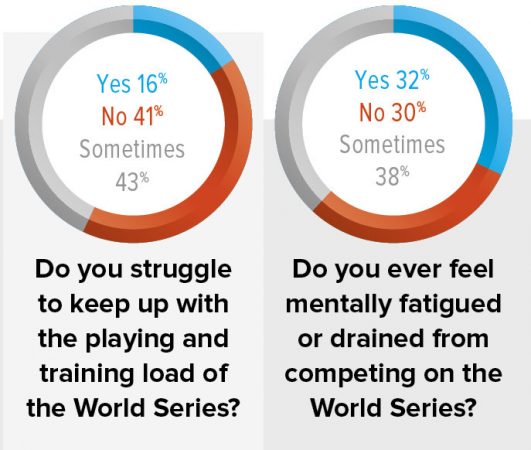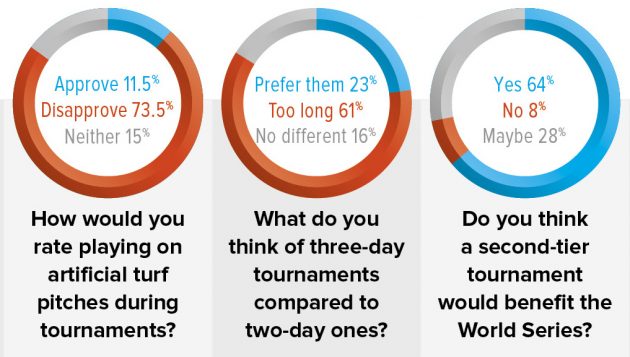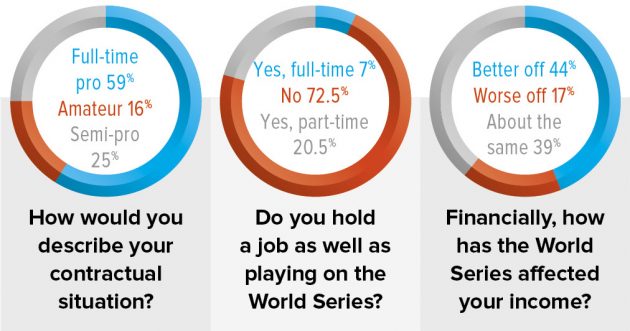The most comprehensive survey of the top men’s sevens players highlights concerns over the physical and mental load experienced on the World Series
Sevens survey raises player welfare concerns
Rugby World has teamed up with International Rugby Players (IRP), the representative body of professional players around the world, to conduct a series of surveys to find out what the players think about the game’s big issues.
In coming months there will be a women’s survey, covering both the 15s and sevens game, and a men’s 15-a-side survey, but to kick things off are the results of the men’s sevens survey.
Close to 200 players from across all 15 core teams on the World Sevens Series completed the IRP survey, which is approximately 85-90% of the elite player base.
The key findings concerned player welfare with nearly 60% of players saying that at times they struggle to keep up with the physical load of competing on the series while 70% struggle with the mental load.

England player Charlie Hayter, who sits on the International Rugby Players Sevens Group, said: “We need to get the season structure right. The number of tournaments is not the issue – we love playing the game.
“However, we need more time before tournaments to allow for mental and physical recovery. Four weeks recovery between tournaments, without travel, should be a bare minimum and a general standard of travel over long distances would be a huge step forward for the game.”
Related: What’s it’s like to train with the England Sevens team

Leading the way: England’s Charlie Hayter in action at the Singapore Sevens (Getty Images)
Interestingly, the players are not fans of artificial pitches used during tournaments with less than 12% approving of them.
As for a possible revamp of the World Series structure, more than 60% of players think three-day tournaments are too long and 64% think a second-tier tournament would benefit the sport as a whole.

Also, a quarter of players on the series work alongside playing rugby, with 16% describing their status as ‘amateur’.
When asked for general comments on the series, players also raised concerns about the effects on their performance of flying such long distances in economy.
One player said: “We need business class flights. Having to travel so far takes it toll on match prep and trying to get your body in the right place to perform is hard.” Another said: “It’s hard to ask a big rugby player to squeeze into an economy seat for 24 hours and be expected to train and perform as soon as we land.”

International Rugby Players CEO Omar Hassanein said: “While most players are happy with the layout of the Sevens Series, there are still areas that need to be addressed.
“We work on an ongoing basis with World Rugby to ensure that the players’ voice is heard. Player welfare, schedules, recovery and travel are all major issues for our members and we need to make sure that, along with getting the economic model correct, player welfare is to the fore so that everyone can benefit.”
In response to the survey, World Rugby stated: “World Rugby is committed to the best-possible player welfare environment, which is why we partner with participating unions, host unions and International Rugby Players to collaboratively and constructively identify enhancements to embed within future hosting agreements.”
World Rugby cited the following as examples of their commitment:
The findings of this survey should now be taken into consideration as the schedule for the 2019-2024 Sevens Series is decided upon.
Read more on the World Sevens Series in the July 2018 issue of Rugby World magazine. Follow Rugby World on Facebook, Twitter and Instagram.





